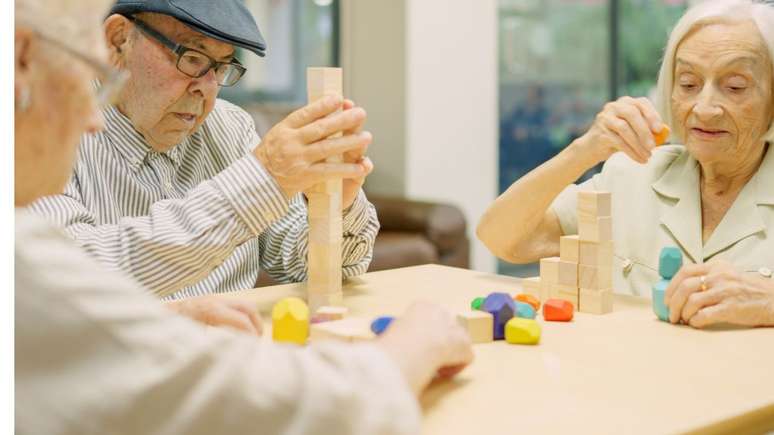The main finding is that their brains show less atrophy (shrinkage) than normal for their age.
A group of scientists dedicated research to a fascinating nicknamed subgroup “super elderly”. These are people aged 80 or older who maintain a memory equivalent to that of individuals 20-30 years younger.
Most studies of old age focus on dementia, the aspect that accelerates cognitive loss. But, for Emily Rogalskiteacher of Neurology from the University of Chicagoin the United States, it is essential to consider the entire spectrum of aging. He published one of the first studies on the topic in 2012.
What makes the brains of super-elderly people special?
A new article, published in April in the scientific journal Journal of Neurosciencehave shed more light on the uniqueness of these individuals’ brains. The main finding is that the brains of “super old people” have it less atrophy (shrinkage) than normal for age.
The research was conducted on 119 octogenarians in Spain: 64 “super elderly” and 55 elderly people with typical memory for their age group. The participants underwent tests of memory, motor and verbal skills, as well as brain scans and lifestyle analyses.
The scientists noticed that the “super elderly” had greater volumes in areas crucial for memory, such as the hippocampus and the entorhinal cortex. They also showed increased connectivity between frontal brain regions involved in cognition.
Bryan Strangeprofessor of Clinical Neuroscience at Polytechnic University of Madridin Spain, and leader of the study, explained that both groups showed minimal signs of Alzheimer’s:
“By having two groups with low levels of Alzheimer’s markers but marked cognitive and brain differences, we’re really talking about resistance to age-related decline,” he stated.
These findings confirm Rogalski’s initial research, which had already shown that the brains of “super-elderly” people more closely resemble those of people in their 50s and 60s, and atrophy at a slower rate over the years.
What does this peculiar audience have in common?
Even if they are “relatively rare” (who represent well under 10% of the population served by Rogalski), we easily recognize them as “super seniors” because of their energy. Come on! Strange describes them as “really very energetic people, you can see it. Older people, but motivated and with a lot of energy.”
Experts don’t have a file yet income to achieve this cognitive longevity, but they noted some lifestyle differences in the Spanish group:
- Better health: The “super elderly” had better mental and physical health, with better control of blood pressure and glucose metabolism and superior performance in mobility tests.
- Activities in middle age: They were not necessarily more active in later life, but reported being more physically active in middle age.
- Social Connections: One consistent factor noted in the research was that these individuals tended to have strong social relationships.
However, the most surprising thing was the amount of similarities between the “super elderly” and the ordinary elderly. As noted, no significant differences were found in terms of diet, amount of sleep, occupational history, or alcohol and tobacco use Strange: “There are a lot of things that are not particularly impressive about them.”
Despite the search for a secret (“eat six tomatoes every day”) be tempting, the scientist Tessa HarrisonRogalski’s collaborator, believes the key is here “some kind of luck bias or some resistance mechanism in the brain at the molecular level that we don’t understand yet,” perhaps related to genetics.
However, science reaffirms that maintaining a healthy diet, being physically active, sleeping well and cultivating social connections are, in general, essential habits for healthy brain aging.
Source: Terra
Ben Stock is a lifestyle journalist and author at Gossipify. He writes about topics such as health, wellness, travel, food and home decor. He provides practical advice and inspiration to improve well-being, keeps readers up to date with latest lifestyle news and trends, known for his engaging writing style, in-depth analysis and unique perspectives.








